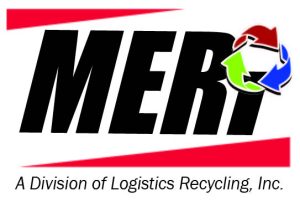
Industries We Serve….is a series highlighting the different types of businesses’ MERI, a Logistics Recycling, Inc. division services, such as Medical Waste Disposal for Direct Primary Care Practices. MERI collects and disposes of biohazard waste like sharps, infectious waste, and hazardous and non-hazardous materials.
Nearly 2,000 direct primary care practices currently operate throughout the U.S. Patients and doctors are looking for care that avoids the high cost, hassle, and rigidness of health insurance systems. Because of this, these types of clinics are gaining popularity.
What is Direct Primary Care?
Direct primary care is a membership-based healthcare model. Patients pay a subscription fee. That fee covers most primary care services, bypassing third-party insurance and eliminating co-pays and deductibles by moving away from the fee-for-service model. This new healthcare delivery model works great for many reasons.
First, patients can get in to see their doctor sooner. The patient/doctor relationship is improved with the ease of getting appointments and extended appointment times.
Additionally, because doctors and patients can ‘shop around,’ the primary care services not already covered under the subscription fee tend to be available at lower rates. The focus is on preventative care. With that, the goal is to eliminate more costly medical procedures or interventions.
Moreover, the administrative hassle of dealing with insurance companies is eliminated for the provider and the patient. Direct primary care is not typically covered under traditional insurance programs. However, it can supplement high deductible insurance plans that include more expansive and expensive health services, such as pregnancy care or emergency hospitalization needs.
Wiser Primary Care is part of this new movement of direct primary care doctors who service a small number of patients through a monthly membership program. According to Alison Iser, M.D., her family care practice has provided about 85-90% of the care that people usually need in their lifetime. “Our smaller practice gives us an opportunity to focus on building relationships,” says Dr. Iser. “Our patients like it because we offer better healthcare without all the insurance paperwork.”
Medical Waste Disposal for Direct Primary Care Clinics
These independently-owned, doctor-run practices must make smart financial choices. Economical operational costs when starting up are crucial to remain viable business units. Direct primary care practices, like any other healthcare facility, must follow proper regulations and guidelines for the disposal of medical waste. Because these practices typically have much smaller patient panels, the amount of medical waste generated is much smaller than that of larger clinics. Therefore, direct primary care clinics like Wiser Primary Care found that using a medical waste mail-back program for their sharps and infectious waste disposal is an economical and compliant solution.
“As a small quantity generator of medical waste, I find the mailback program is a perfect fit for my practice.”
When Wiser Primary Care handles routine procedures that require sharps disposal, they use MERI’s medical waste mailback kit. “As a small quantity generator of medical waste, I find the mailback program is a perfect fit for my practice,” said Dr. Iser.
Contact Us to find out more about our regulated waste stream collection and recycling solutions.
##



